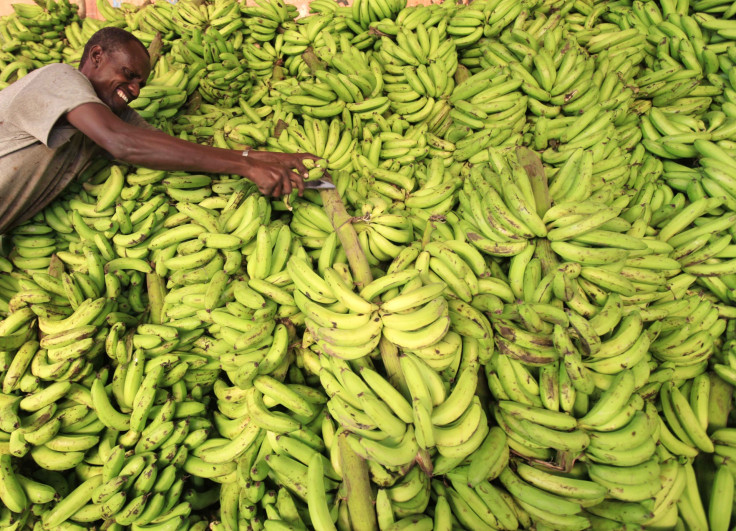Somalia To Receive $2.4 Billion In Aid From Global Donors, As President Promises To Focus On Development

International donors pledged $2.4 billion in aid to Somalia on Monday in a vote of confidence for the war-torn country's young government.
Delegates from about 50 countries around the world gathered for a one-day meeting in Brussels to come up with the plan, which has been dubbed a 'New Deal' for Somalia. The biggest chunk of funding will come from the European Union, which promised $868 million.
The funds, which are to be disbursed over the next few years, will have plenty to address in a country where about 43 percent of the population lives in extreme poverty.
Somalia was one of the world's most violent, unstable countries for two decades after 1991, when a coup ousted former President Mohamed Siad Barre. While the population dealt with recurring famine and rampant poverty, a kaleidoscope of violent militias fought for power, disrupting livelihoods and destroying infrastructure.
Al-Shabab, a designated terrorist organization affiliated with al Qaeda, has over the past several years become the most prominent militant group in the country. Despite international efforts to combat al-Shabab, the group remains a threat and, as recently as Sept. 7, two bombs in the capital city of Mogadishu claimed 18 lives.
Somalia's nascent turnaround began in Aug. 2012, when a new constitution was approved. One month later, a formal parliament was selected and President Hassan Sheik Mohamud was appointed. And although the new government represents the most political progress Somalia has seen in 22 years, its efficacy, in a country where corruption and division are major concerns, remains to be seen.
Last year, a leaked report from the United Nations' Monitoring Group warned that "the transfer of power to a more effective, legitimate and broad-based national authority is threatened by the efforts of diverse Somali political leaders and their supporters to hijack or derail the transitional process."
But, Mohamud sounded an optimistic note at the meeting in Brussels.
"A remarkable transformation is being achieved in Somalia as the world recognizes we have the greatest opportunity, not without potential, in a generation -- to reinvest in sustainable peace and development," he said, according to Voice of America.
Despite the billions of dollars that have already poured into Somalia in recent years -- much of it for security initiatives -- Somali citizens are still suffering on a grand scale. One of their most reliable sources of income has been remittances from abroad, but fears about terrorist activities have spooked Barclays (LON:BARC), the London-based lending institution, which has become one of the biggest facilitators of money transfers into Somalia.
For months, Barclays has been threatening to close its accounts with Somali wire transfer companies, though it has delayed the cut-off date in the face of resistance from Somali authorities and nonprofits who argue that up to 40 percent of the population relies on remittances, which have a yearly value of about $1.5 billion, according to UN estimates.
While Somalis and aid groups fight to keep the wire transfers flowing, Mohamud promises to spend the incoming aid money on key sectors -- legal reform, public finances, security and economic recovery -- in hopes that Somalis can begin to build up the domestic economy without having to rely on family members abroad.
“The New Deal must be delivered on the ground soon," said Mohamud. "It must not be a well-intentioned bureaucratic process that remains remote from the Somali lives. The expectations from our people are extremely and understandably high.”
© Copyright IBTimes 2024. All rights reserved.
Join the Discussion




















